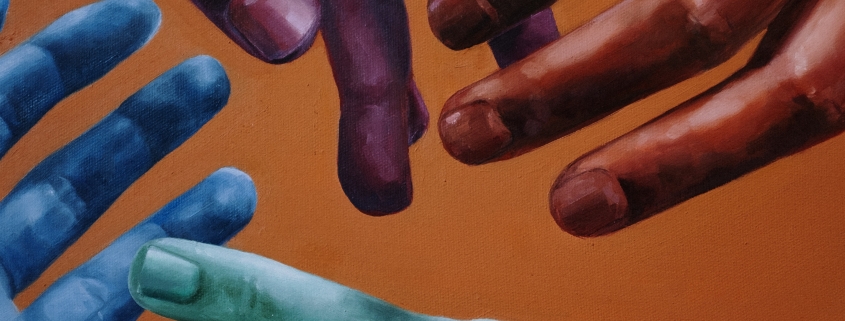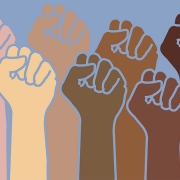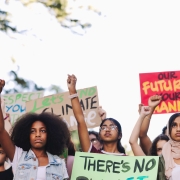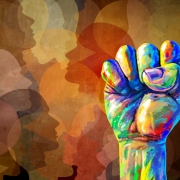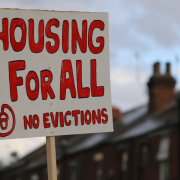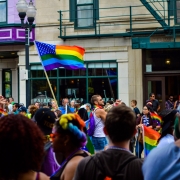Immigration is Mutually Beneficial. When will Americans Learn this Lesson?
As seen on the San Diego Union-Tribune.
As “the land of opportunity,” the United States has always had a tradition of welcoming immigrants. Indeed, as we all learned in high school, our country was built by such people. Mostly poor, uneducated and unskilled, more than 20 million immigrants came to America between 1880 and 1920. Despite opposition and resentment, they survived and prospered all while helping to build the greatest economy in the world.
America’s experiment in democracy deserves the credit. By bringing in new people with new ideas, it fostered competition, creating what became widely known as American exceptionalism. And it worked. Not just then, but even today, with almost half of America’s Fortune 500 companies being started by immigrants or the children of immigrants.
Now we are experiencing a new wave of immigrants flooding across our southern border with Mexico. Mostly people of color, they have mainly come from El Salvador, Guatemala and Honduras, fleeing oppression and violence in their home countries. More recently some 15,000 immigrants, many from Haiti, established a tent city near a Texas border crossing. But they all came here seeking a better life, just like those others did more than 100 years ago
After all this time, it seems like Americans would understand how immigration is a mutually beneficial process. On the one hand, it reinforces the U.S. economy on a systemic level, and on the other, it transforms the lives of immigrants on an individual level. In the final analysis, we need each other, especially now in the wake of the COVID-19 pandemic that has America suffering a labor shortage.
Unfortunately, America has still has not learned this lesson. Consumed by prejudice and intolerance, especially against racial and ethnic minorities, opponents fail to see the potential benefits. Just as their predecessors did more than a century ago, they fear the worst: increased crime and violence from a generation of freeloaders who present nothing but a burden on America’s economy.
Such ideas have been fostered by misinformation and spread through social media and political rhetoric. Growing in intensity every year, the problem has now reached a boiling point. Yet the facts paint a completely different picture. When we look at the research, we find that most new arrivals are law-abiding, hardworking and loyal, perhaps even more so than the rest of us.
First of all, contrary to the stereotypical depiction, new immigrants are not chronically in need of health care and other social support. Instead, they are healthier than expected when entering the country, willing to work and contribute to society. This is especially true for refugees like those seeking asylum in America. The federal government does pay the initial cost of their resettlement, but over their first 20 years of residency, they pay it all back and more in taxes.
What about the “rapists” and “murderers” we’ve heard about? The worst of the worst, coming across the southern border to wreak havoc and disorder? Again, these stories are intended only to frighten and build political opposition. The truth is that crime rates among immigrant populations are actually lower than those of native-born Americans. According to a landmark study by the Cato Institute, a conservative think tank, even people who have entered the country illegally have lower rates of conviction. In fact, 45 percent lower when comparing the 2018 conviction rates of undocumented immigrants in Texas to those of native-born Americans in Texas. Moreover, the data shows that rates of violent crime go down as immigration increases.
These data are not only clear but conclusive. Rather than being a burden, immigrants are a good investment in America’s future. Even so, many people — 42 percent, according to a 2019 Gallup poll — remain convinced that immigration leads to crime.
Why do so many cling to these false beliefs? Alex Nowrasteh, one author of the Cato Institute study, may have the answer. It “could be that people who don’t like immigration could just ascribe all types of negative behavior to [immigrants] in order to justify their dislike.”
It’s time to leave such false narratives behind. History has proved them wrong. Today we know the truth. It was diversity that made America great — diversity of people and ideas, brought together in a free and open society where everyone has the chance for a better life.
America has come a long way since its beginnings, and it has been an uphill battle. But through war, civil strife and political upheaval, the country has been steadily moving beyond its racist past.
It is time to celebrate people of color and welcome a new era of freedom and prosperity. Let’s not let petty biases and prejudice stand in the way.
Author:
Dan Skiles
Consultant, IPS
Dan Skiles is a consultant and former Executive Director at the Institute for Public Strategies, a Southern California-based nonprofit that works alongside communities to build power, challenge systems of inequity, protect health, and improve quality of life.

